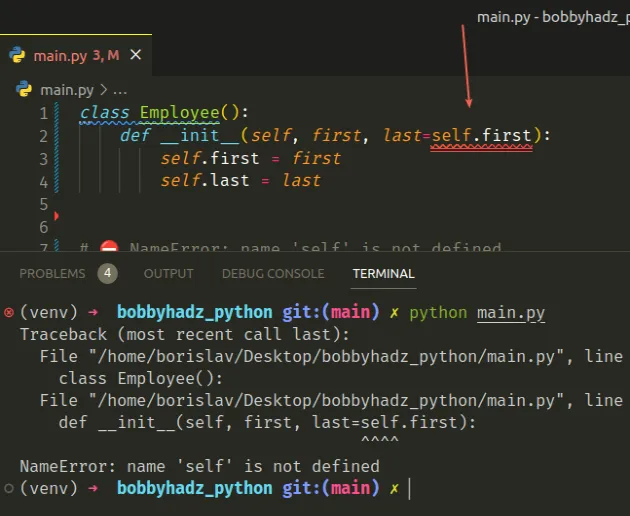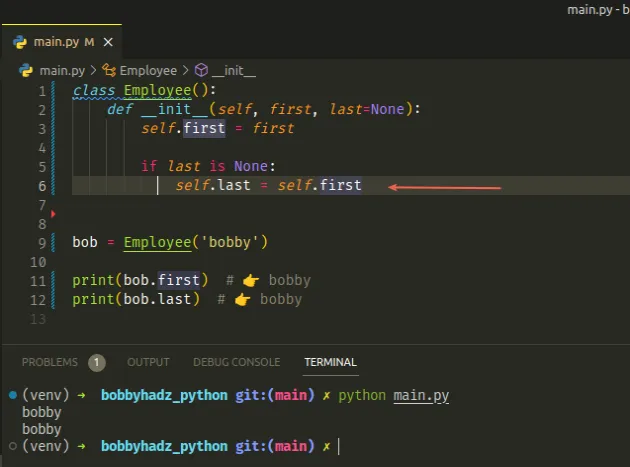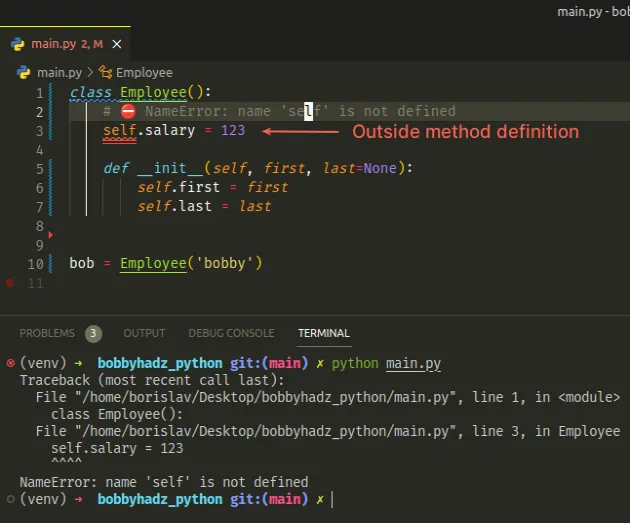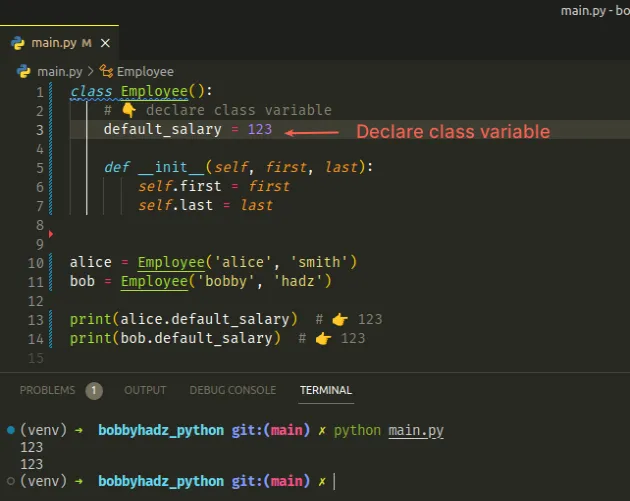NameError: name 'self' is not defined in Python [Solved]
Last updated: Apr 10, 2024
Reading time·3 min

# NameError: name 'self' is not defined in Python [Solved]
The "NameError: name 'self' is not defined" occurs for multiple reasons:
- Forgetting to specify the
selfargument in a method. - Trying to use
self.attributeas a default value in a method argument. - Trying to access
selfoutside of a method.

Here is an example of how the error occurs.
class Employee(): def __init__(self, first, last=self.first): self.first = first self.last = last # ⛔️ NameError: name 'self' is not defined bob = Employee('bobby', 'hadz')

The issue is that we're using the self argument as a default value in the
method's definition.
self is an argument that represents the instance the method is called on, so it is available only when the method is called.# Specify a default value inside the method's definition
If this is how you got the error, specify a default value inside the method's definition instead.
class Employee(): def __init__(self, first, last=None): self.first = first if last is None: self.last = self.first bob = Employee('bobby') print(bob.first) # 👉️ bobby print(bob.last) # 👉️ bobby

We check if the last argument is None and if it
is, we set it to the value of the first argument.
# Trying to access self outside of a method
You might also get the error if you try to access self outside of a method.
class Employee(): # ⛔️ NameError: name 'self' is not defined self.salary = 123 def __init__(self, first, last=None): self.first = first self.last = last bob = Employee('bobby')

We tried to access self directly in the class, outside of a method which
caused the error.
# Declare class variables without using the self. prefix
If you meant to declare a class variable, omit the self. prefix.
class Employee(): # 👇️ Declare class variable default_salary = 123 def __init__(self, first, last): self.first = first self.last = last alice = Employee('alice', 'smith') bob = Employee('bobby', 'hadz') print(alice.default_salary) # 👉️ 123 print(bob.default_salary) # 👉️ 123

The class has a default_salary class variable and first and last instance
variables.
Employee.default_salary.Instance variables are unique to each instance you create by instantiating the class.
Regular methods get passed a self object that gives us a reference to the
instance on which the method was called.
# Forgetting to specify self as an argument of a method that uses it
Another common cause of the error is forgetting to specify self as an argument
of a method that uses it.
Make sure to specify self as the first argument in all class methods that make
use of it.
class Employee(): default_salary = 123 def __init__(self, first, last): self.first = first self.last = last # 👇️ Specify self as first argument def greet(self, greet): return greet + self.first + ' ' + self.last alice = Employee('alice', 'smith') bob = Employee('bobby', 'hadz') print(alice.greet('hi ')) # 👉️ hi alice smith print(bob.greet('hey ')) # 👉️ hey bobby hadz print(alice.default_salary) # 👉️ 123 print(bob.default_salary) # 👉️ 123
The first and last instance variables are unique to each instance, but the
instances share the same default_salary class variable.
Note that the name of the self argument is just a convention. In practice, you
could use any other name, e.g. this.
However, this is not recommended as the convention is followed by most (if not all) Python developers and not following it would make your code more confusing and more difficult to read.
# Conclusion
To solve the "NameError: name 'self' is not defined", make sure:
- You haven't forgotten to specify the
selfargument in a method. - You haven't accessed
selfoutside of a method. - You haven't used the
selfargument as a default value of another argument in a method.

